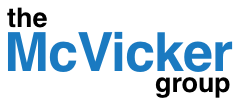Well, I got too busy to blog when I returned from Google Next. Here are some of my favorite sessions.
TensorFlow and Deep Learning without a PhD was definitely worth the price of admission. Here are the two videos.
Firebase was also super impressive. My son and I have already built the tutorial chat application and are turning it into a universal translator based on geolocation of clients.
You can subscribe to the Google Next 2017 Channel on YouTube and see all sorts of highlights.
Enjoy!
